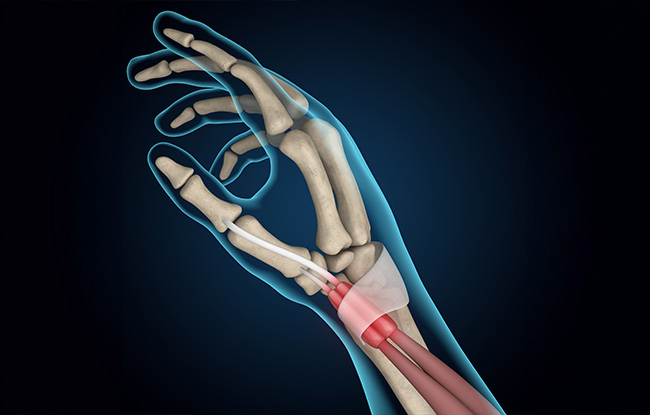Tendonitis Capitola
Tendonitis
Tendons are located all over the body as they connect muscles to the bones in the shoulder, wrist, elbow, knee, heel, etc., and are made up of collagen, a protein found in the body. Tendonitis can occur in any body part, but the most common places are the thumb base, elbow, shoulder, hip, and knee. In tendonitis, tendons swell due to an injury or trauma. Soreness, stiffness, and pain can affect your joint, usually near the tendon attached to the bone. It can be either short-term or long-term, and you may often experience pain, swelling, cracking, popping sound, etc. If you take it lightly and do not pay heed to treating the condition, it can worsen the situation and lead to chronic tendonitis. Moreover, may have difficulty in moving the affected part of the body, muscle weakness, torn tendons, etc.

What Causes Tendonitis?
It is common for anyone to get tendonitis but more prevalent in people who perform activities that can cause repeated stress on the tendon. Some of the activities that can increase elbow tendonitis include:
- Repetitive movement
- Heavy lifting
- Squeezing and twisting movements
- Painting
- Gardening
- Playing tennis or golf
- Even sitting in poor posture for more extended periods
- Wear and tear due to aging
How is Tendonitis Diagnosed?
Our healthcare provider thoroughly examines the patient’s medical history, family history, signs, or symptoms, followed by physical examination and diagnostic tests. Our providers will gently use their hands to move the affected part of the body, limited by pain or other symptoms. The idea is to assess the signs, determine the condition, and possibly rule out other conditions. Moreover, combining diagnostic tests may help us understand and provide more accurate results. So, X-rays and MRI scans are generally standard for more accuracy levels. At Harbor Health Center, we aim to help patients experiencing repetitive strain from their occupations or other activities. Our healthcare providers can develop the most suitable treatment plan that best suits your lifestyle and helps with pain so you can return to your daily schedule.
